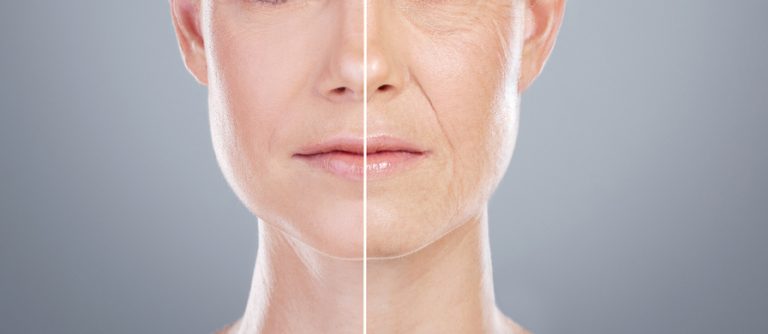Things Your Skin and Body Does & Doesn’t Need as You Age Part 1
Serums, creams and moisturisers are what we turn to when our skin needs help but did you know your diet makes a big difference too?

You are what you eat is something we kind of know to be true, but the impact it will have on you as you age, unfortunately does increase.
So if you are eating too many of the wrong things and not enough of the right ones then it will show in both your skin, and body.
Let’s start with your handy skin and body improvement guide. Part One is all about what you need to be careful about.
CAUTION with these
Because we are all different, you may be able to tolerate some of these without seeing the effect on your skin, but just be aware that for some it will be helpful to cut them out, but others can just reduce them.
Spicy food is good for some, but not for everyone – particularly if you already have hot flushes.
It makes your blood vessels swell and even break, leading to purple marks on your face. If you have rosacea — common in women after menopause — the heat from spice can trigger a flare-up.
It also raises your body temperature, so you sweat to cool back down. When sweat mixes with the bacteria on your skin, it can cause breakouts and blotches.
Margarine especially the solid kind, have trans fats. They raise your “bad” cholesterol, lower your “good” kind, and create inflammation throughout your body.
Your skin is the largest organ in your body, and everything you eat affects it. Inflammation is linked to heart disease and stroke, two conditions that can give you an aged appearance.
Carbonated drinks really help the cells in your tissues age, so the more you have, the worse the effect.
In addition to the fizz, they have more calories and added sugar — 7 to 10 teaspoons in 12 ounces — than any other drink.
Combined with the bacteria in your mouth, that sugar also forms acid that wears down your tooth enamel and causes decay. Other cons include weight gain and a higher risk of stroke and dementia.
Ready meals, whether fresh or frozen can pack in half the sodium of a healthy daily diet, so always read the label.
When you have too much salt, it causes you to drink more than normal and flood your kidneys. Any extra water will move to places in your body that have less salt, like your face and hands and that’s what makes you look puffy.
Alcohol dehydrates you and this makes a big impact on your skin, which is 63% water. Even if you drink a big glass of water, it will hydrate all your other organs before your skin.
When you don’t get enough, your skin looks and feels dry, and can’t defend itself against wrinkles.
Processed meat like bacon, sausage, ham, and deli cuts, are smoked, cured, or salted so they’ll last longer without going bad. It’s what makes them both delicious and dangerous.
The sodium and chemical preservatives cause inflammation that can wear your body down inside and out. A little inflammation is good as it helps your cells heal but too much can cause heart disease, stroke, and diabetes.
Fried food promotes free radicals, or unstable molecules that damage other molecules in your cells and add years to your skin.
You find free radicals in fried food so cut down on the chip pan and bake rather than fry when you can.
Cakes and biscuits are usually high in artery-clogging fat that put on the pounds. They also don’t skimp on sugar, which in excess can cause diabetes, high blood pressure, and tooth decay.
Inflammation is another reason to cut down as the more inflammation you have, the higher your chances of arthritis, depression, Alzheimer’s, and some cancers.
Grilling and frying meat at high temperatures creates advanced glycation end products, or AGEs.
Low levels of AGEs are fine as your own body produces them, but high amounts from charred meat causes inflammation that can trigger heart disease and diabetes.
High-fructose corn syrup is the chemical cousin to sugar and used to sweeten soft and fruit drinks.
Among many other health drawbacks, it interferes with your body’s ability to use copper, which helps you form the collagen and elastin that keeps your skin healthy.
Again, it’s also full of calories and puts you at risk for diabetes and heart disease.
Caffeine in any form, whether tea, coffee or caffeinated soft drinks stimulates your brain and your need to urinate and this can cause dehydration.
When you don’t have enough water, your skin stops releasing toxins and this then backs up makes you more prone to dry skin, psoriasis, and wrinkles.
Helpful information:
Part Two next week adds in the things you really need for your skin to look its best.
Your skin needs hormone balance too, so if you want to know more about that, then this article will help.
https://anna.blog.wellsprings-health.com/keeping-your-skin-beautiful-healthy-at-any-age/


















